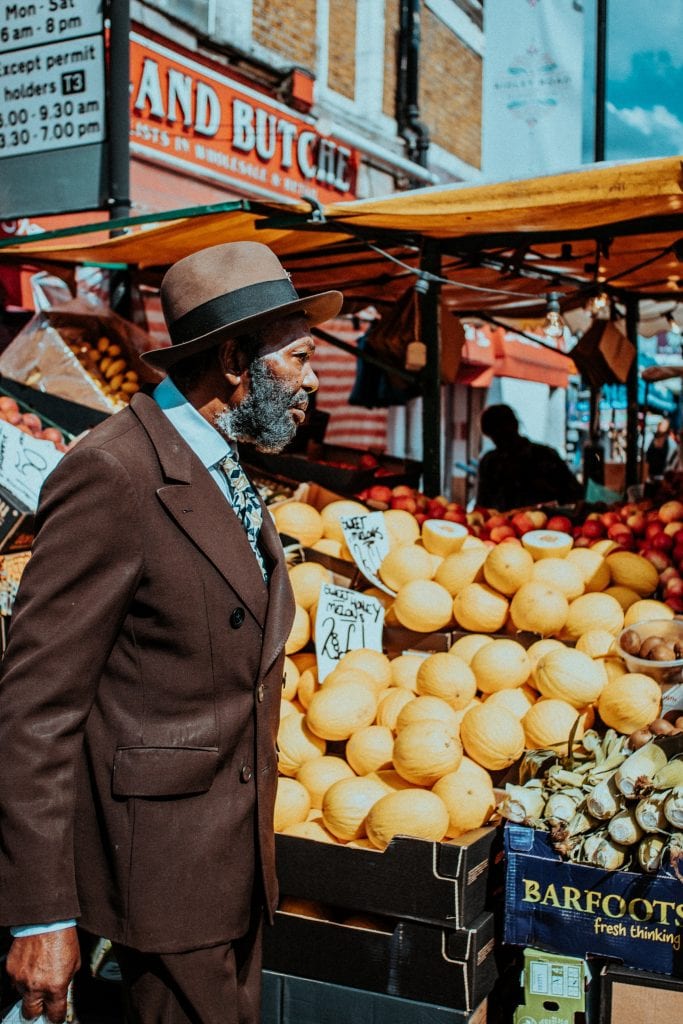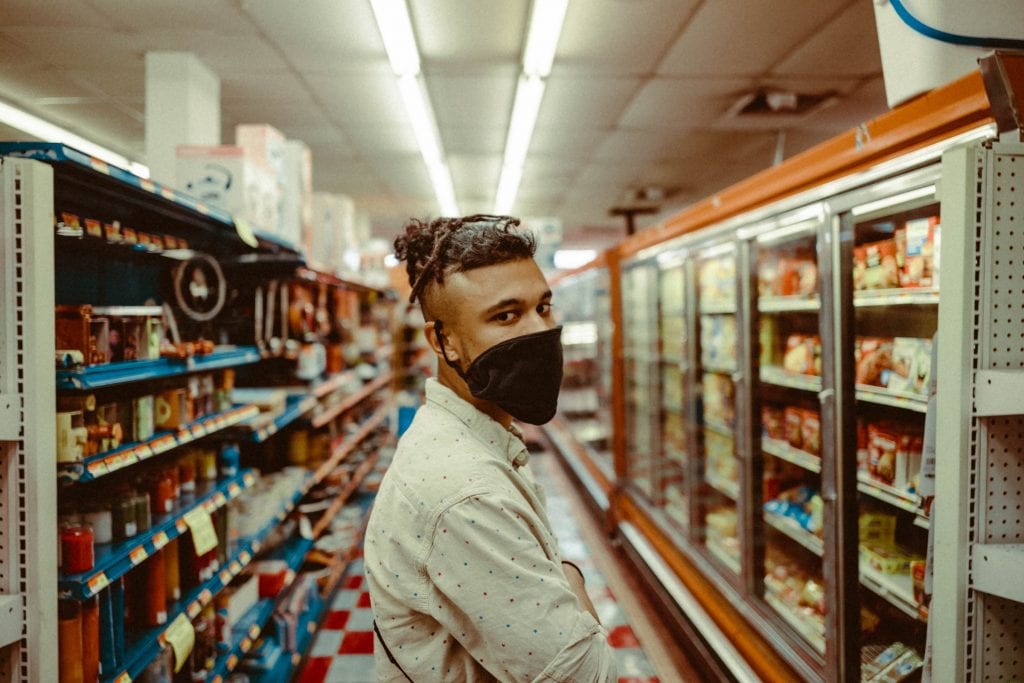Introduction
The Co-op African market forms the base of marketing activities for products shipped from Africa. Basically, blacks patronize this market more. The wide range of commodities emanating from Africa sold there is the main cause for this. The Co-op City African market has been pivotal to the economic growth of the black population in the United States of America. With the increasing importance of the Co-op African market, it has become necessary for an examination of its activities as well as the challenges facing its smooth growth, especially during this pandemic period.
Africa is the cynosure of most businesses, and it is imperative that its outlets outside Africa receives attention. The Co-op African market is also pivotal to the realization of the sustainable development goals of the society. However, the outbreak of the COVID-19 has affected Co-op African market and has seen to the disruption of its activities.
There is a need for the resuscitation of the African market in the Co-op City. Of course, every stakeholder is important for the survival of the African market. More so, the recent happening in the United States of America that has seen agitations for improvement in the livelihood of the black population contributes to the need for a sustainable economy.
This article explores the essence of the African market and its huge importance in the Co-op City while also focusing on the market challenges that the African market in the Co-op City faces.
History of the Co-op City
The largest cooperative housing development in the world, Co-op City is also known as the Cooperative City. It is located in the Baychester section of the Borough of the Bronx in Northeast New York City. The project was built on 320 acres of land and designed by Herman J. Jessor, a cooperative architect; sponsored by the United Housing Foundation, an organization founded by Amalgamated Clothing Workers of America and Abraham Kazan in 1951 and financed with a mortgage loan from New York State Housing Finance Agency. The name of the complex corporation got changed to RiverBay at Co-op City later on.
In 1975, the complex could not pay back the loan but was able to secure agreements to extend payment date with HFA. However, the situation got worse in 2004 as the complex could not meet up on payments as a result of the expenses on emergency repairs. New York Community Bank settled the $57 million mortgage obligation of RiverBay; although it was unable to settle the $95 million arrears payment.
An agreement was then put in place to ensure that Co-op City remains in the Mitchell-Lama Housing Program as a concession on the arrears for at least seven more years. Also, it was agreed that any reconstruction done by Co-op City took on the old structure (constructed under the State’s watch) would get credit toward eliminating the debt. In 2008, RiverBay was able to provide enough evidences of repairs constructed in a bid to pay off the balance of arrears to New York State.
African Market
Why do you think the African market is dubbed the next frontier for businesses? It is logical to opine that this is probably not unconnected to the fact that the market has several potentials that are yet to be tapped. From unprocessed raw materials to mineral resources, the African market remains the cynosure of all eyes in the business world. However, it is ironical that Africa has not hugely benefited from its own resources despite being in grip of these untapped potentials.
Africa has a market that is ready to be explored. Taking the right steps to maximize the potentials of this market should be the aim of every black entrepreneur. The attractiveness of the market makes it easier for brands to thrive. The African market has its own challenges even if it is also an avenue to generate wealth for interested investors.
The African market has transcended boundaries and fast becoming a dominant force in other parts of the world aside Africa. Many cities have locations where the African market thrives and enjoys huge patronage from Africans and other people of colors. Investing in such market would obviously boost the economic power of the black society in non-African countries. It will also give them a platform to leverage on negotiations and discussions that affect their common good.
The Co-op City African Market

Fairbairn, et. al. (1991: 1) asserted that “for decades, co-operatives in market economies have arisen where there are market deficiencies – imperfect competition, excessive concentrations of power, and unmet needs. They have arisen, too, where the costs of adjustment to economic change have threatened to destroy communities, where local people needed power to control the pace and direction of change in order to preserve what they valued. Look for the market deficiencies, look for the costs of change – look for the need – and find the niche where a co-op may thrive.” This premised the need for a Co-op market that would be of economic benefit to Africans.
A typical example of an African market thriving outside of Africa is the Co-op City African market. Over the years, the Co-op markets had always met the needs of a certain group of people involved in its establishment. Shops in the Co-op City sells products which include but not limited to condiments, foods and vegetables, clothes and accessories that are shipped from Africa. These businesses thrive because of the population of African-Americans that actually patronizes them.
It had become necessary for Co-op City African markets to be established because of the disparity in the means of livelihood of the blacks. For the economic survival of the people, the Co-op city African market remains a sure bet for the economic development strategy of the community.
Benefits of the Co-op City African Market
The Co-op City African market is beneficial to the black population in different ways, and they include:
Creation of Jobs
The African market in the Co-op City creates a whole lot of jobs for locals. These jobs include but not limited to sales representatives, sales attendants, security men, sales managers and a whole lot of others. This also helps in reducing unemployment among the black population while also improving their livelihood. Many workers in the Co-op African markets are able to secure jobs for themselves after facing marginalization from elitist jobs.
Income Generation
Economic activities in the Co-op African market have made exchange of financial resources easier among the black population. Sellers are able to generate income and workers also get their own shares from the profits. This ensures that money remains in circulation.
Access to Goods and Commodities
The Co-op African market provides a platform for people to get access to a wide range of products . Many times, it creates a bond between the black population in the United States and their roots in Africa.
Economic Growth
The economic activities in the Co-op African market enhance the economic growth of the black community. When the economic power of the people increases, it boosts their level of productivity and their standard of living.
Development of Regional Markets
Export of goods and commodities from African countries to the United States of America helps in improving Africa’s economy. Financial inflow from foreign countries is also beneficial to the livelihood of the producers.
Market Challenges in the Co-op City

Despite the growth of African market in the Co-op City, it still faces some challenges. And these stand as impediments to its steady growth. These challenges include:
Climate Change
Africa is one of the continents affected by climate change. This has also affected their productivity level in terms of consumables. Many countries in Africa are unable to export as much products as they would love to, due to the adverse effects of climate change. This has therefore affected the African market in the Co-op City.
Economic Policies
Producing countries have regulations that guide their economic activities. The situation of these countries influence policies made. These economic policies are vital to the sustenance of the amount of products that are to be exported for use in most African markets.
Low Income Generation
Most times, Co-op City African markets do not generate enough profit needed for its sustainability. This is as a result of the standard of living of those who patronize them. And many of them do not have enough resources to purchase these products.
Buyers
Many Co-op City African market are not able to thrive well as most of the buyers are mainly blacks and few other people of different colors. Many black people also prefer to stick with the conventional American food and this affects sales in the Co-op City African market.
African Market and the Sustainable Development Goals
What other way can the global goals of the United Nations be achieved if efforts are not geared into the sustainability of the African markets in relation to the sustainable development goals? The SDGs advocates the need to leave no one behind. And this is irrespective of race, religion or whatsoever parameter that so exists. There is a need to ensure that the African market is positioned to actualize the goals of the UN. The African market contribute to all the sustainable development goals. However, this article explores a few of these goals.
Below are ways the African market is actualizing some of the SDGs:
Goal 1 – No Poverty
The economic disparity that has seen the marginalization of Africans makes it necessary for a need for economic survival. The proper sustenance of the market will surely eradicate poverty. This will invariably boost the living conditions of low-income earners as well as that of the society.
Goal 2 – Zero Hunger
The proceeds from the African market will definitely play a huge role in reducing hunger. In a Co-op city that is people-driven, opportunities abound for participatory and sustainable forms of businesses. This will help communities take advantage of the market to get food for their satisfaction.
Goal 3 – Economic Growth
For survival of the black communities, economic growth of the people and businesses has to be prioritized. Economic stability enhances job security and increases the provision of services to the host community.
Impact of COVID-19 on the African Market

In a biannual Africa’s Pulse report released by the World Bank, there is a forecast that economic growth in sub-Saharan Africa will decline from 2.4% in 2019 to between -2.1% and -5.1% in 2020, as a result of the pandemic, COVID-19. The strategic measures used in combating the economic effects of the pandemic will also ascertain the statistics. The continent would however witness its first recession in the last 25 years, according to reports.
There is no doubt that this will definitely affect the inflow of foreign finance as well as Africa’s involvement in trade chains. A report from the UNCTAD’s Economic Development in Africa 2019 stated that, in the period of 2015-2017, total trade from Africa to the rest of the world averaged $760 billion in current prices, and the share of exports from Africa to the rest of the world ranged from 80% to 90% in 2000 –2017 in Africa’s total trade. It was also reported that the only other region with a higher export dependence on the rest of the world is Oceania.
This indicates a huge hit on the African market as well as its outlets in other parts of the world. The pandemic has led to closure of several airports and sea borders. This has affected the movement of goods and commodities from Africa to the rest of the world. As it stands, African markets in the Co-op cities would have to survive on remnants of their goods. This will have to continue pending the period that borders would be opened for trade.
The Co-op City African Market post-COVID
While we cannot be certain of what to expect post-COVID, we can at least make projections. The pandemic has affected the Co-op City African market hugely. And of course, the economy will take its own share of the hit. There is therefore a need for sustainable plans to resuscitate the hard-hit economy. There have been loss of jobs; reduction of wages; and many would definitely run out of business.
It has therefore become necessary for Africa to strengthen its international trade agreements in a bid to boost its export sectors. More beneficial treaties such as African Growth and Opportunity Act (AGOA) would have to be created with other major economies, for economic resuscitation of the Co-ops. The effects of these treaties will not be instant. Survival techniques will be used to combat the effects of the pandemic.
The black communities also have a duty to patronize Co-op African market for its quick economic survival. We have to make efforts to ensure that African markets survive the turbulent pandemic. Of note is the timely role the African Development Bank has made in cushioning the effect of the pandemic. The mobilization of about $10 billion as financial aid to African countries to combat financial crisis resulting from the pandemic would go a long way in assisting the African market. However, we have to make efforts to ensure that key farmers get the needed resources to boost production of food for internal consumption. This will invariably aid the economic survival of Co-op African markets.
Conclusion
The role of the Co-op African market cannot be over-emphasized. It is the duty of all stakeholders to ensure that the market survives its reason for existence. The African market remains pivotal to the generational wealth for black entrepreneurs. The untapped potentials in the African market are fertile grounds for further exploration.
The smooth survival of the African markets in the Co-op city surely has its own challenges. However, resilience and determination are keys to ensuring its continued activities. The African market still remains the bedrock for economic survival for the black population in America.
With the myriad of challenges currently facing the black population, efforts have to be put in place to ensure that the African market has its own stability that cannot be threatened by any internal crisis but could be used as leverage for negotiations to safeguard their interest irrespective of whose ox is gored.
The outbreak of the pandemic, COVID-19 calls for reactive measures to ensure that the Co-op African market survives the pandemic. The survival of the Co-op African market is integral to the economic stability and livelihood of the black population in the United States and must be guarded jealously.
